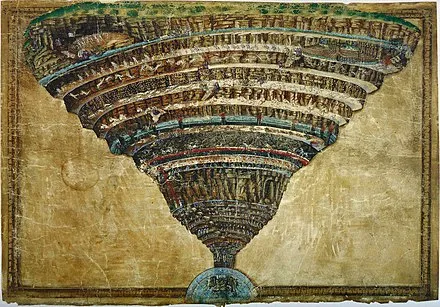Some time ago, I wrote a post about a TV show called "The Good Place". The show mainly focuses on the afterlife, and while it is a comedy, it raises some thought-provoking questions about heaven and hell, their representation in the present, and whether the fear of hell leads people to do insincere good deeds in order to earn a place in heaven.
First, let's discuss how heaven and hell are depicted in different religions.

Christianity
In Christianity, heaven is often described as a place of eternal happiness and peace, where believers are reunited with God and their loved ones who have also passed away. Hell, on the other hand, is often described as a place of eternal suffering and punishment for those who have rejected God and lived a life of sin.
Islam
In Islam, heaven is described as a place of eternal bliss, where believers are rewarded with all kinds of pleasures for their righteous deeds. Hell, on the other hand, is a place of eternal punishment and suffering for those who have rejected Allah and lived a life of sin.
Hinduism
In Hinduism, the concept of heaven and hell is not as straightforward as it is in other religions. There are multiple heavens and hells, each with their own unique characteristics and levels of suffering or bliss. These are believed to be temporary states that the soul experiences after death, before being reincarnated into a new body.

source
If someone where to ask me how do you imagine hell i would instantly think Dante's Inferno as a vast and terrifying place where the punishments would be ironic and symbolic, fitting the nature of the sin committed with river of boiling blood and fires everywhere.
The major religions have somewhat similar representations of heaven and hell, with some differences, of course. The question that came to mind after watching the show and pondering on the topic was: do people fake their good actions? This is a truly philosophical question.
In my opinion, the answer is yes, heaven and hell definitely influence people. For the majority of people, from the moment we are born, we are taught to be good, follow rules, and that when we die, we will end up in heaven. Even for those who do bad things, they may believe that they are doing it for a good purpose and for God, so they would also end up in heaven. However, I also believe that while we may be influenced, we don't solely act based on this belief. Being good or bad is the result of so many factors, such as the way we grow up, our society's values and norms, our mental state, and even our hormones like testosterone and endorphins. While heaven and hell do play some role, especially for believers, it's not the only factor that determines our behavior.